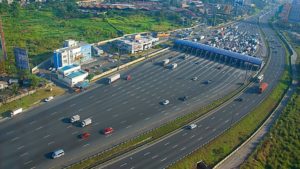
The Philippines and the Asian Development Bank (ADB) have signed a loan agreement worth US$200 million in additional financing to the Philippine government to undertake engineering and feasibility studies for major infrastructure projects.
The loan package was signed by Philippine Finance Secretary Carlos Dominguez III and ADB vice president Ahmed Saeed on December 13. Also signed were two other loan packages worth $423.3 million intended to prepare the country’s young workforce for quality jobs, and promote free and fair competition in business.
These three loan agreements are part of the $10.3 billion in financing support committed by the ADB to the Philippines over the medium term, the Department of Finance said in a statement.
The additional financing for the Infrastructure Preparation and Innovation Facility will enable the Philippine government to undertake engineering and feasibility studies for major infrastructure projects under its “Build, Build, Build” program.
These projects include the Bataan-Cavite Interlink Bridge, Samal Island-Davao City Connector Bridge, Mindanao Railway Project, Metro Manila Subway, Subic-Clark Railway, North-South Commuter Railway System, and the Metro Rail Transit (MRT) Line 4 from Ortigas in Metro Manila to Taytay, Rizal.
The government last November revised its list of projects under the Build, Build, Build program, increasing the number from 75 to 100 projects with a total worth of P4.2 trillion. Of the 100 projects, 73 are transportation and mobility projects worth P3.84 trillion.
Of the 73 projects, 27 are already being implemented, nine are in advanced stages of feasibility study; 18 in advanced stages of government approval, and 19 will start construction in six to eight months.
In terms of financing, 16 projects are to be funded via general appropriations, 32 through official development assistance, and 25 (of which 15 are unsolicited) through public-private partnerships. The target completion dates for these undertakings range from 2020 up to 2028.
